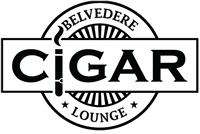In Defense of Flavored Cigars: Why a Blanket Ban Misses the Mark
As the national conversation around flavored tobacco products heats up, flavored cigars have become the latest target in the battle over public health. Regulators argue they’re a gateway for youth addiction. Advocates say they disproportionately affect minority communities. On the surface, these concerns seem well-intentioned.
But scratch beneath that surface, and another truth emerges—one rooted in adult freedom, economic fairness, and a more nuanced view of regulation. Let’s break it down.
Flavored Cigars: Not Just for Kids
The dominant narrative implies that flavored cigars are an entry point for youth smoking. That may be true for e-cigarettes and cheap cigarillos, but it oversimplifies the cigar industry and overlooks a critical fact: the majority of cigar consumers are legal adults who make informed decisions about their lifestyle.
Walk into any respected cigar lounge places like Belvedere Cigar Lounge in New Jersey, the Lightning Lounge in Morristown, or Smokeasy in Atlanta—and you’ll find grown professionals, veterans, entrepreneurs, and retirees. Many of them enjoy flavored cigars not as a rebellion against authority, but as a personal indulgence—one rooted in taste, not taboo.
Cognac, rum, vanilla, or coffee-infused cigars are often premium products, savored with intent, much like a fine bourbon or craft espresso. Should these adults be penalized because bad actors market knockoff cigarillos to teens at gas stations?
The Economic Impact: Small Businesses Will Bear the Brunt
Let’s follow the money.
Banning flavored cigars won’t hurt big tobacco conglomerates as much as it will devastate small businesses—cigar shops, lounges, and regional distributors who depend on flavored lines for 20–40% of their product mix.
In places like New Jersey, Philadelphia, and Miami, flavored cigars are an essential part of cultural cigar traditions. Whether it’s a rum-infused Robusto or a honey-dipped Maduro, these aren’t impulse buys for teens—they’re part of a larger adult lifestyle economy.
Removing these products from the market means lost sales, lost tax revenue, and lost jobs. It also opens the door to black market sales, which are not regulated, not taxed, and ironically far more accessible to youth.
Regulation Already Exists—Enforce It Better
The U.S. already has age restrictions for tobacco. It’s illegal to sell any tobacco product, flavored or not, to anyone under 21. If youth are still getting their hands on these products, that’s not a flavor issue—it’s an enforcement one.
Rather than a sweeping ban, why not focus on:
- Enforcing ID checks more strictly
- Restricting flavored cigar marketing in youth-heavy media spaces
- Raising penalties for retailers caught selling to minors
These targeted strategies don’t infringe on adult choice—and they hold retailers accountable without punishing everyone else.
The Slippery Slope of “Flavor Policing”
Let’s be honest: if we go down the road of banning anything “flavored” because it might attract youth, where does it stop?
- Will coffee-flavored vodka be next?
- Should we restrict birthday cake-flavored protein shakes?
- What about rum-flavored extract in cooking?
It sounds absurd, but the logic is the same.
Prohibition-style bans often lead to unintended consequences. When the focus shifts from responsible usage to overregulation, freedom becomes collateral damage.
Cultural Impact: The Disregarded Tradition
Flavored cigars have a deep connection to Afro-Caribbean and African-American cigar culture. Sweet leaf wrappers, rum-infused sticks, and cognac-paired cigars are part of a legacy that spans generations. A blanket ban erases that cultural expression in the name of safety, without considering the nuanced, community-driven spaces where these products are enjoyed responsibly.
If equity is truly the goal, then honoring cultural practices—not erasing them—is the real work.
A Smarter Path Forward
We’re not saying the problem of youth tobacco use should be ignored. But it’s time for a better solution—one that acknowledges:
- Adults can and should make informed choices.
- Small businesses deserve protection, not punishment.
- Enforcement—not erasure—is the best path to prevention.
Banning flavored cigars outright may feel like progress, but it’s ultimately a blunt instrument for a complex issue. Let’s invest in better education, targeted regulation, and cultural sensitivity.
Because liberty, after all, should taste like freedom—even if it smells like vanilla and burns slow.
Let’s Talk: Do you agree? Disagree? We welcome your thoughts in the comments below. Let’s move the conversation forward—with respect, intelligence, and a shared commitment to both health and freedom.
